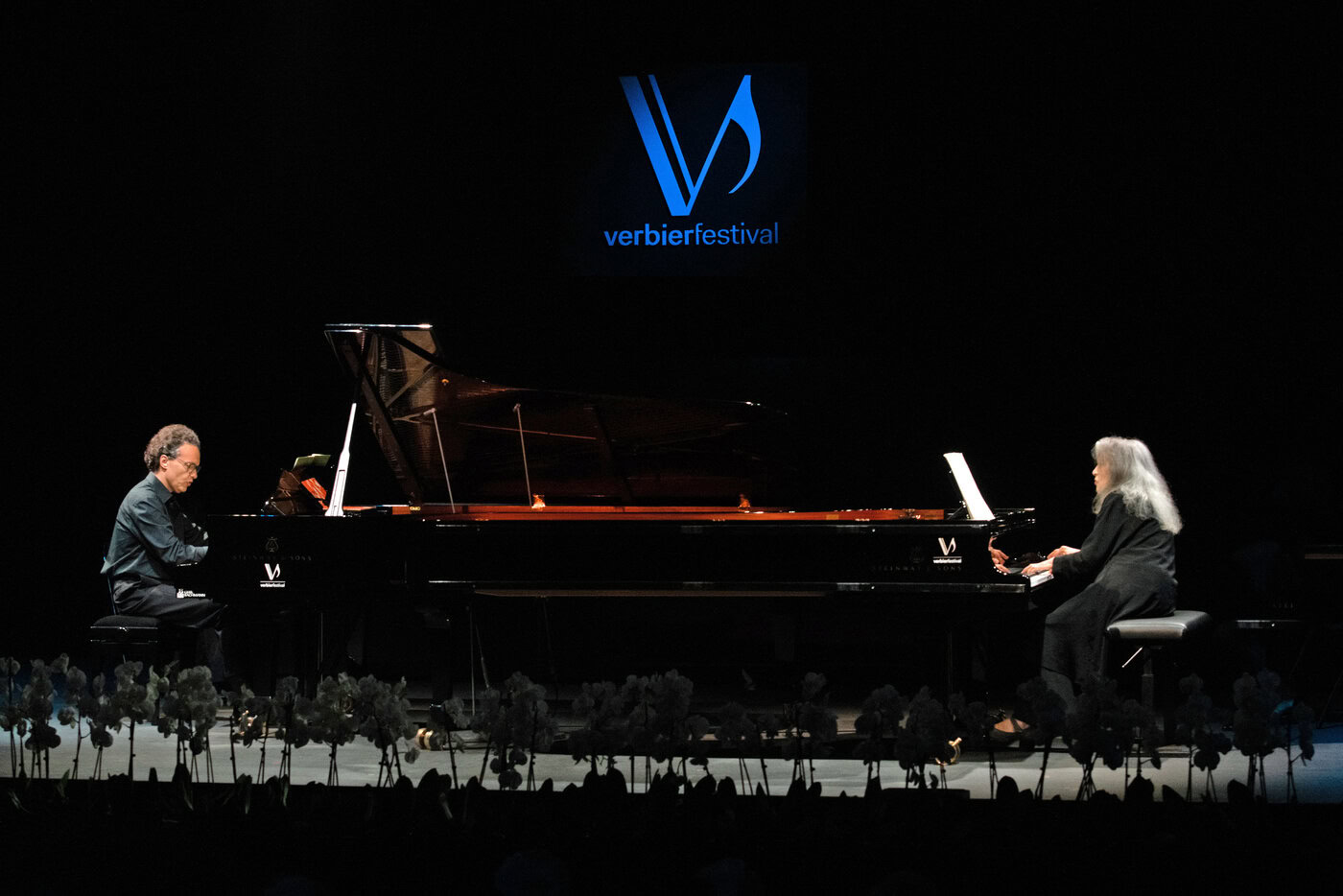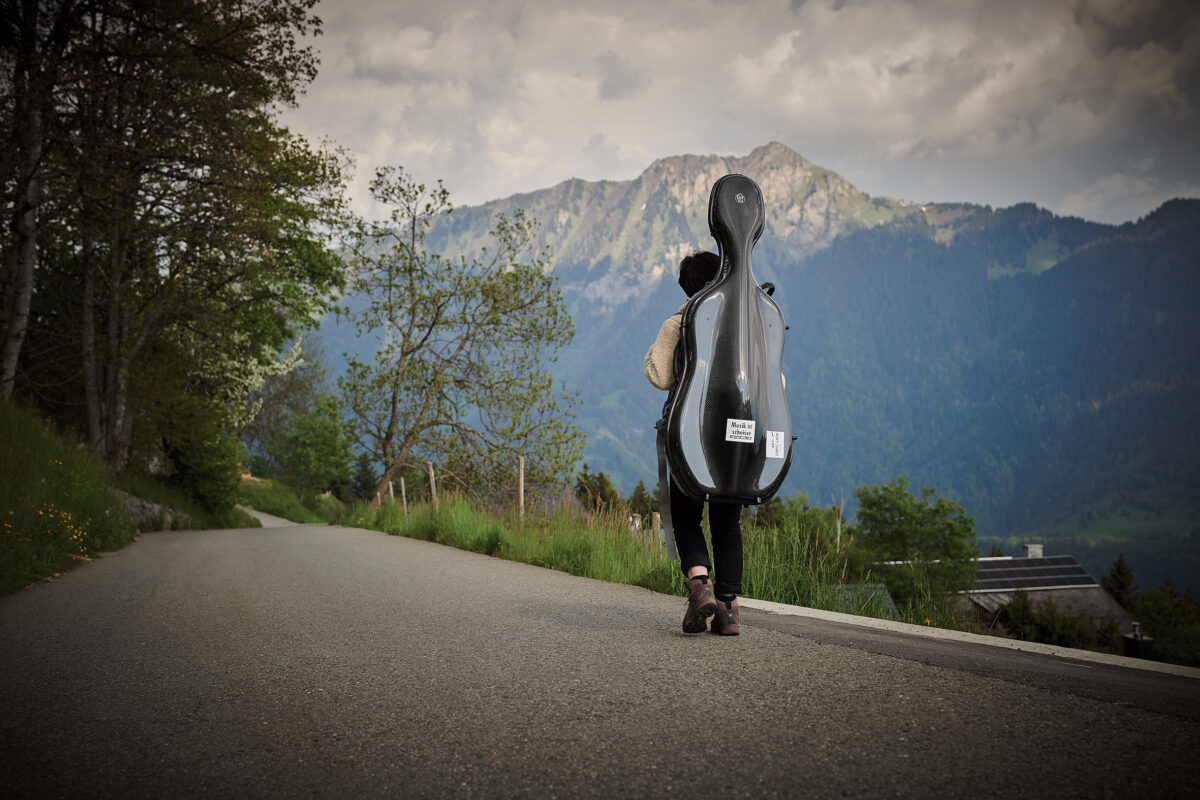Verbier, in search of the absolute at the summit
In Verbier, the musical magic works, without borders, between the power of the rock and the almost oceanic depth of sound. Immersed in the acoustics of the Combins auditorium, which, like chocolate, is more conducive to the golden square than to the back rows, where the audience deplores the sound. In this program, the quest for love dominates, setting the scene for exceptional and lasting unions celebrating their fiftieth anniversary.

On the one hand, Martha Argerich and Mischa Maisky, fifty years of collaboration, and on the other, the fiftieth anniversary of the death of Shostakovich, embodied by the Russian Evgeny Kissin, among others: Verbier travels between the summits of Russia and Asia.
The music transcends political asperities in the heart of the mountain, paying homage to the greatness of Russian culture, which, according to its deep tradition, must be linked to the soul. Between harmonic shifts, existential questionings and bursts of brilliant light, Shostakovich's open-mindedness and integrity are reborn from his eternity, through the power of a vibrant palette of sounds and senses, whose program Evgeny Kissin has conceived. Is it a story of power and grandeur that shapes the great Russian musicians? There seem to be two currents, symbolically represented in Verbier. On the one hand, the breadth of gesture, fluidity and power under Currentzis's theatrical, exacerbated baton; on the other, Kissin's feline, velvety, vigorous, inner touch. These antagonisms are perhaps a reflection of Russian DNA, torn between glory, the quest for the absolute, humility, generosity and the interiority of the soul. Verbier's big screen projects the spectator-receiver into a fascinating immersion. Shostakovich takes us on a great emotional ride, in a molten present time; urgency, necessity, the desire for the absolute and the quest for light, whose perfect fullness is reflected by the audience as they leave, allow us to forget the events of the day. Some spectators in the fourth row shout "Long live Russia", delighting in provoking without being reprimanded. At the dinner table in the evening, we overhear a few Verbier management figures talking. They point out that Currentsiz attracts a large, fervent audience, which is good for sales, but that this theatrical aspect is not the only ingredient needed for musical beauty; depths go beyond theatricality. These words reflect the fact that Verbier is not just pomp and pageantry, but a real breeding ground for passionate people and great talent. Teodor Currentzis, Russian, and Alexandre Kantorow, French, recall the great cultural link between France and Russia of yesteryear with the Rhapsody on a theme by Paganini by Rachmaninov.
Then, even higher up, the spotlight shines on the 50th anniversary of the musical collaboration between Martha Argerich and Mischa Maisky, recorded in an LP box set whose Martin T:son Engstroem evokes the lively conversation, the musical chemistry, the inevitable musical love at first sight in the face of such powerful affection and complicity.
Evgeny's choices illustrate the composer's infinite palette of emotions and styles. Unity is the watchword of these flagship "Verbier" concerts, spotlighting the subtle, fascinating conversation woven by colorful interplay between Martha Argerich and Evgeny Kissin in the Concertino in A minor, Op. 94. Kissin holds back time, clenching his fist in space to capture the silence, between piercing lights and throbbing ostinato, he carries Argerich's playing with respect; she overlooks this unrolled, hushed red carpet. Antoine Tamestit and Evgeny Kissin close this dedication with the 1975 Sonata for Viola and Piano Op. 147, composed by Shostakovich a few days before his death. In this work, the composer illustrates his austere despair and resignation in the face of death, and confides "I never have peace, and I probably never will. Persecution, judgment and adversity are forever transcended by his music, to which Verbier pays tribute. The Festival closes with a fair, perfect performance of Tchaikovsky's Concerto No. 1, conducted by Paavo Järvi, in which Khatia Buniatishvili's theatrical attitude shines through. Nevertheless, some journalists criticize the waiting time, the unforeseen circumstances and the mediocre quality of this concert, but tolerance is a word that should not be forgotten in any situation, when the musical soul is present.
This is followed by a subtle interpretation of Gustave Mahler's Symphony No. 1, with the ardor and winks of the conductor and the refreshing, playful youth of the Verbier Festival Orchestra's sorcerer's apprentices. Galina, an immensely talented Russian pianist and pedagogue of the link between sound, relaxation and the pianist's soul, who wishes to remain in the shadow of the spotlight, analyses: "Khatia Buniatishvili is perfect for Tchaikovsky's Concerto No. 1 for piano and orchestra, where she is like a fish in water, theatrical, melancholy, powerful, pearlescent, dramatic: all the ingredients that Tchaikovsky tackled, for he was a man of the theater, a composer-dramatist-symphonist. This concerto is a ballet, and should be played neither too loudly - not hitting the chords as many pianists do - nor too still. Tchaikovsky asks questions: how do we grow up in this world? He opens the door to the greatness of the spirit.








